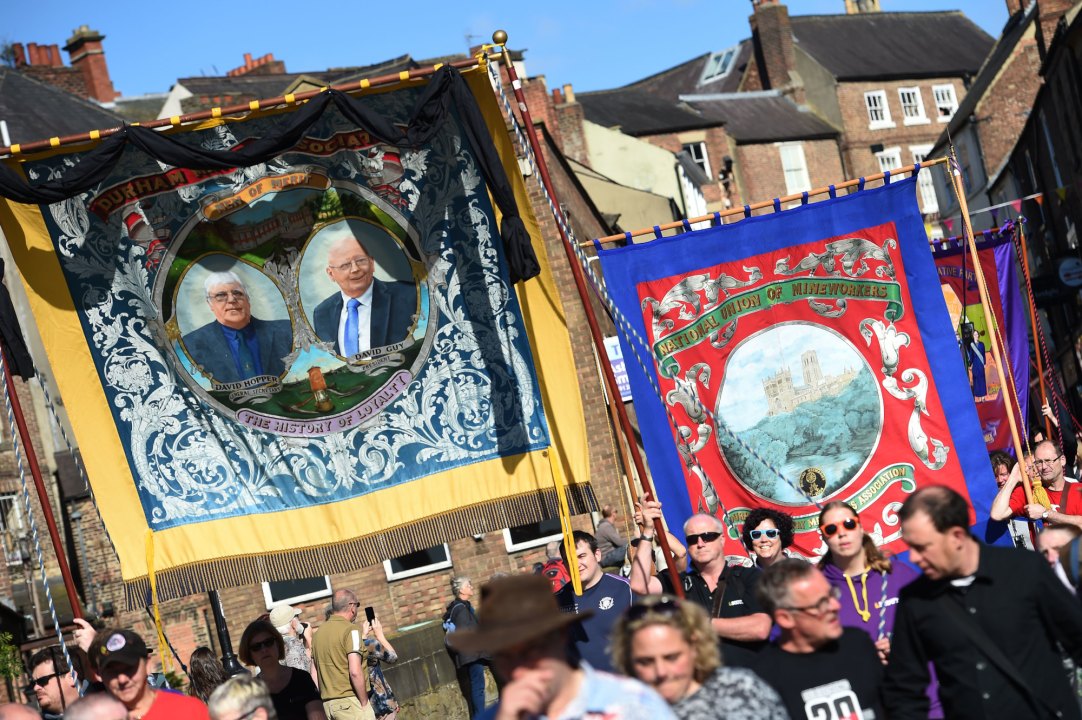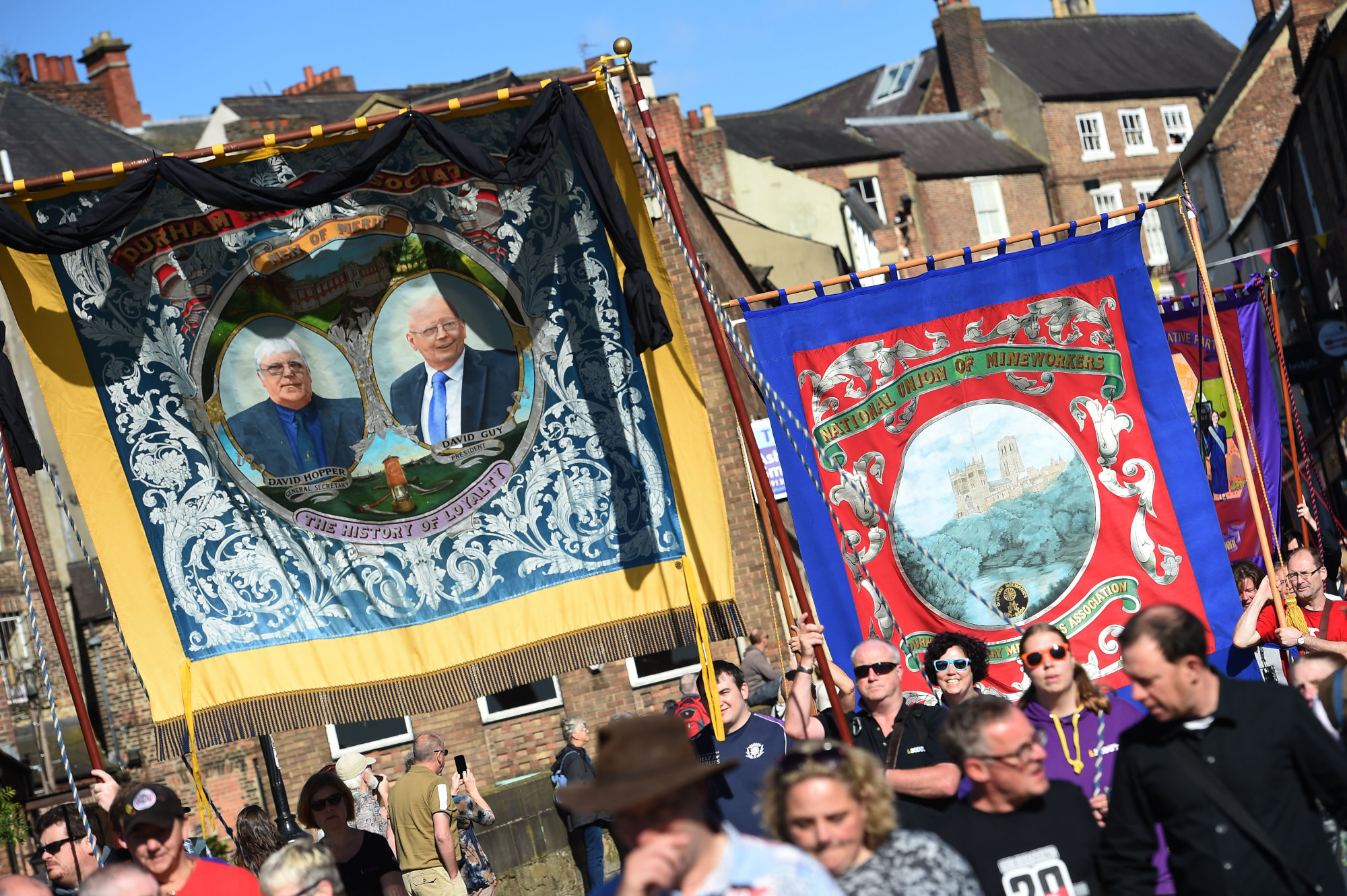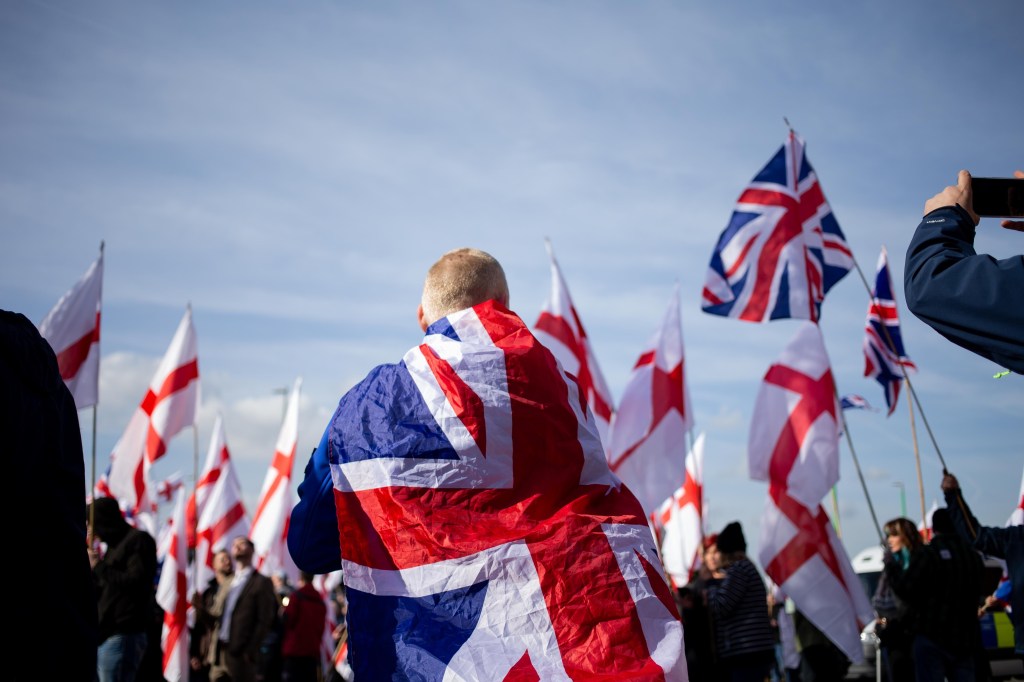Britain is not lacking in trade unions – if anything, they have become one of the country’s few reliable constants. The latest example: the London underground workers who are set to go on strike for seven days in September.
In theory, trade unions exist to protect workers from the overreach of power – and in some areas, particularly pay disputes, they still serve that purpose. Yet in other, more insidious ways, many unions have become instruments of power themselves, enforcing ideological conformity rather than defending workers’ rights.
A culturally conservative trade union would have a simple purpose: to defend the British worker from ideological coercion and economic dispossession.
Take the 2024 case of five NHS nurses in Darlington, who raised concerns about a male colleague presenting as female and their discomfort at having to undress in the same changing space. When they complained, the hospital allegedly said they needed to be ‘educated’ and be ‘more inclusive’. After legal proceedings were initiated, Health Secretary Wes Streeting met with the women and expressed his support. In response, Steve North, then president of Unison, effectively backed their employer and accused the women of transphobia, posting on X: ‘It is deeply concerning that [Wes Streeting] appears to be once again pandering to anti-Trans bigotry… I stand, as UNISON President, with the Trans community!’
This was not an isolated case of unions refusing to stand by their members. In 2019, firefighter Paul Embery was sacked from his role in the Fire Brigades Union for addressing a pro-Brexit rally – accused of siding with the far-right simply for defending a democratic vote.
In 2021, Professor Tim Luckhurst, principal of Durham University’s South College, was placed under investigation after calling a student walkout during a Rod Liddle lecture ‘pathetic’. Instead of standing for academic freedom, the University and College Union urged the university to escalate the inquiry and bar him from interacting with students in a pastoral role.
Time and again, unions have sided with ideology over the very people they claim to represent. No longer a shield for workers against institutional or corporate power, they serve as enforcers of conformity to the prevailing dogma. Their loyalties, of course, remain firmly chained to Labour – a party that abandoned the working class years ago but still parades its 11 affiliated unions like trophies. This is the same Labour party that has spent decades supporting a culturally radical agenda, concealing it just long enough to win power. A leopard, as the saying goes, does not change its spots.
For years, Labour has backed mass immigration, which has flooded the labour market, driven down wages, and steadily eroded the bargaining power of the very workers the party claims to defend.
So where does that leave the British worker who believes in fair wages – but also in borders, tradition, and the right to dissent? Where is the union that will stand up for the nurse coerced into ideological training, the care worker pressured to keep quiet about illegal migration, or the engineer required to tick an ethnicity box just to qualify for promotion?
To build such a union, there is precedent and inspiration, from South Africa, a country where political hostility toward a particular cultural minority has become state doctrine. In this environment, the Afrikaner community responded not by begging for scraps but by building alternatives.
The most prominent is Solidarity, a trade union rooted not just in wage negotiations, but in cultural defence. In a labour environment dominated by ANC-aligned socialist unions, Solidarity filled a vacuum.
It defends its members’ jobs, yes – but also their language, their heritage, and their right to exist as a people with a future. It has taken the government to court over racial quotas, stood up for workers punished for dissenting views, and refused to surrender to the ideological monoculture.
That model could be adapted to Britain – not imported wholesale, but translated for the national context. A culturally conservative trade union would have a simple purpose: to defend the British worker from ideological coercion and economic dispossession. It would fight for fair wages and decent working conditions, but also for cultural security.
It would push back against HR departments drunk on imported dogma and hold corporations accountable for wage suppression through mass migration and offshoring.
Some might scoff at the idea. Is trade unionism not inherently left-wing? That is a fiction the left would love you to believe, but the essence of unionism is not socialism – it is solidarity. And national solidarity does not belong to the left. If anything, the right has a moral duty to reclaim it.
A new trade union would be the beginning of the answer to many of the problems facing British workers. Not another talking shop or think tank, but a real-world institution with the power to defend workers on the ground. If done properly, it could become one of the most potent forces in British public life – more feared than a backbench MP, more respected than a shadow minister. This is because it would have something none of the current unions have: a genuine mandate from the people – the builders, carers, truckers, and technicians who have endured decades of cultural humiliation and economic neglect.
Robert King is a British-South African PPE student. He stood as a candidate in South Africa’s 2024 elections.








Comments